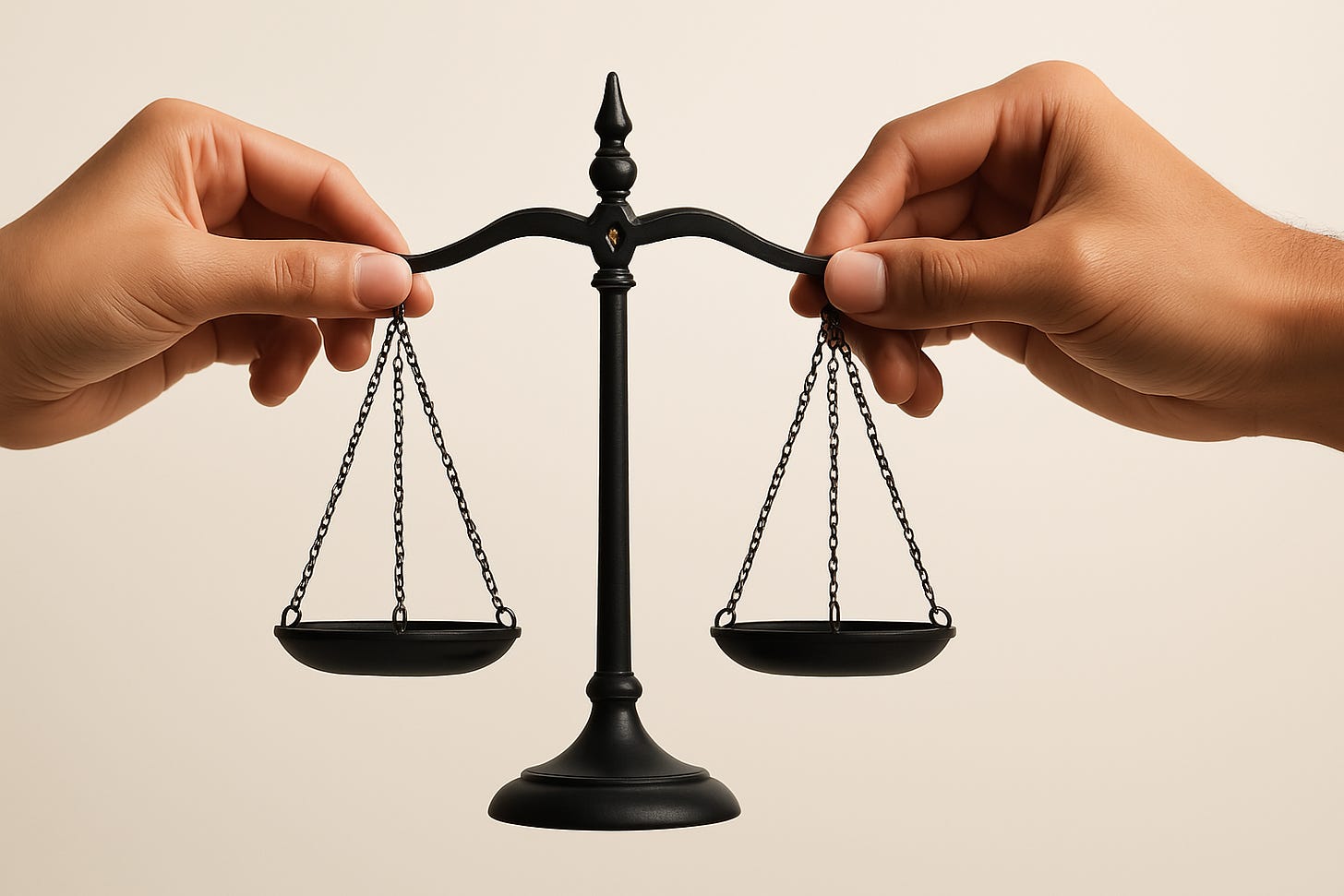A Better Way to Justice: Why Arbitration Should Replace the Courts
When Judges Can’t Be Trusted
When the judge is tied to one side of a dispute—as in most cases involving government—it’s no longer justice, it’s power disguised as process. That’s why more and more people are turning to arbitration, especially as confidence in traditional courts continues to erode.
In any fair system, a fundamental principle of justice is that no one should serve as judge in their own case. Yet governments around the world violate that principle constantly. Whether it’s a minor traffic citation or a major regulatory battle, disputes between individuals and the state are almost always decided by courts that are part of the state itself.
The alternative—arbitration—isn’t new, but it’s gaining relevance in an era when people are searching for fairer, faster, and more impartial ways to resolve conflict.
Arbitration: The Fairer Default
Arbitration is, at its core, a voluntary process where a third party—chosen or approved by both disputing parties—renders a binding decision. Unlike state-employed judges, arbitrators must earn and maintain the trust of the parties. If their judgment is consistently unfair or biased, they won’t be hired again.
This is why arbitration clauses are becoming increasingly common in business contracts. The parties involved prefer to have their disputes resolved outside the courtroom, in a system where they agree on both the process and the decision-maker in advance. This is especially important in high-stakes or cross-border transactions.
Even governments have recognized the value of arbitration. International treaties like NAFTA mandate that disputes between foreign investors and host nations be resolved not in national courts, but through international arbitration bodies like ICSID. Cities like Singapore and Dubai offer world-class arbitration centers, recognizing that neutral, efficient dispute resolution is a key asset for attracting global business.
Yet despite all this, arbitration is almost never the default. That’s a missed opportunity—especially for a future where governance is more voluntary and contractual.
Reputation Over Regulation
In Robert Heinlein’s novel The Moon is a Harsh Mistress, there’s no formal government or court system on the moon. But disputes still get resolved. How? Arbitrators with reputations for fairness emerge naturally. Their authority comes not from law, but from trust.
That’s fiction—but not fantasy. In our real lives, we trust complete strangers to drive us across town because a rating system tells us they’re reliable. Reputation already governs so many parts of the modern economy—why not justice?
A dispute resolution system based on reputation would make fairness a competitive advantage. Arbitrators would gain business by being perceived as impartial, efficient, and just. Those who fail to live up to that standard would simply lose clients. This market-based model rewards merit, not political connections.
Smarter Rules, Juster Outcomes
Two simple changes could dramatically improve how disputes are resolved—whether by courts or arbitrators:
1. The English Rule: Under this rule, the losing party pays all legal costs for both sides. It discourages frivolous lawsuits and prevents wealthy parties from bullying their opponents through endless litigation. In contrast, the American rule—where each side pays its own costs—creates perverse incentives. It’s so unfair that U.S. law includes numerous exceptions to try to mitigate its effects.
2. Baseball Arbitration (Last Best Offer): Instead of giving arbitrators the power to split the difference between two sides, this method forces them to choose one side’s proposed resolution in its entirety. It encourages both parties to be more reasonable, knowing that extreme or exaggerated demands are likely to lose. It also nudges them toward settlement, since each knows their odds improve if they narrow the gap.
These reforms, especially in combination, could make arbitration not just an alternative, but a superior method of justice. They’re faster, more affordable, and better aligned with incentives for truth and fairness.
A Market for Justice
Autonomous or semi-autonomous jurisdictions—like Próspera or Morazán—have an opportunity to make arbitration their default justice system. Rather than emulate the bureaucracy of national courts, these cities can lead the way in building dispute resolution that is genuinely impartial, efficient, and voluntary.
Imagine a city where you know in advance that your contracts will be interpreted by neutral third parties, where disputes are resolved in days or weeks—not years—and where your rights are judged by clear standards, not political whims. That’s not just good governance; it’s a competitive advantage. It makes a place more attractive to residents, entrepreneurs, and investors alike.
And perhaps most importantly, it models what justice could look like in a society that values consent over coercion.
Rethinking Justice From the Ground Up
For most of history, courts have been instruments of the state. But they don’t have to be. Arbitration offers a path to a more accountable, more humane, and more flexible form of justice—one that’s based on agreement, not authority.
We already trust reputation to guide our decisions in many areas of life—from transportation to commerce to accommodation. Trust-based systems work when incentives are aligned and bad actors face consequences.
Justice should be no different.
By embracing arbitration—not just as an option, but as a new foundation—we can build systems of dispute resolution that genuinely serve the people, not the powers that be.

